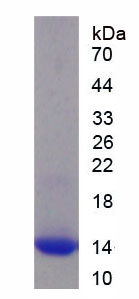Recombinant Macrophage Migration Inhibitory Factor (MIF) 

GIF; GLIF; MMIF; Glycosylation-Inhibiting Factor; L-dopachrome isomerase; L-dopachrome tautomerase; Phenylpyruvate tautomerase
Overview
Properties
- Product No.RPA698Hu01
- Organism SpeciesHomo sapiens (Human) Same name, Different species.
-
Applications
Positive Control; Immunogen; SDS-PAGE; WB.
If bio-activity of the protein is needed, please check active protein.
Research use only - DownloadInstruction Manual
- CategoryCytokineInfection immunityRheumatologyAutoimmunity
- Source Prokaryotic expression, Host E.coli
- Endotoxin Level<1.0EU per 1µg (determined by the LAL method)
- Subcellular LocationSecreted
- Molecular Mass 13.1kDa, Accurate 14kDa(Analysis of differences refer to the manual)
- Residues & TagsMet3~Asn111 with N-terminal His Tag
- Buffer Formulation20mM Tris, 150mM NaCl, pH8.0, containing 0.01% SKL, 5% Trehalose.
- Traits Freeze-dried powder, Purity > 90%
- Isoelectric Point7.1
Share your citation
Upload your experimental result
Review
Leave a message
Loading...
Sign into your account
Share a new citation as an author
Upload your experimental result
Review
Please attach serial No. on instruction manual


Contact us
Please fill in the blank.
Name*
Organization
Address
E-mail address*
Telephone
Inquiry*
Verification code*

Sequence

Usage
Reconstitute in 20mM Tris, 150mM NaCl (pH8.0) to a concentration of 0.1-1.0 mg/mL. Do not vortex.
Storage
Avoid repeated freeze/thaw cycles. Store at 2-8°C for one month. Aliquot and store at -80°C for 12 months.
Stability
The thermal stability is described by the loss rate. The loss rate was determined by accelerated thermal degradation test, that is, incubate the protein at 37°C for 48h, and no obvious degradation and precipitation were observed. The loss rate is less than 5% within the expiration date under appropriate storage condition.
Increment services
-
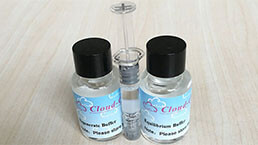 Endotoxin Removal Kit
Endotoxin Removal Kit
-
 BCA Protein Quantification Kit
BCA Protein Quantification Kit
-
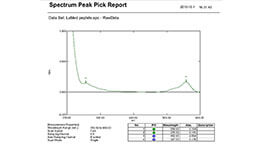 Protein Labeling Customized Service
Protein Labeling Customized Service
-
 Molecular Mass Marker for Protein
Molecular Mass Marker for Protein
-
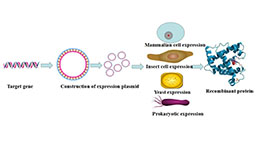 Recombinant Protein Customized Service
Recombinant Protein Customized Service
-
 Monoclonal Antibody Customized Service
Monoclonal Antibody Customized Service
-
 Polyclonal Antibody Customized Service
Polyclonal Antibody Customized Service
-
 Protein Activity Test Experiment Service
Protein Activity Test Experiment Service
-
 Immunoprecipitation (IP) Experiment Service
Immunoprecipitation (IP) Experiment Service
-
 Buffer
Buffer
-
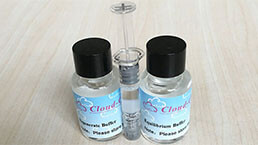 Endotoxin Removal Kit II
Endotoxin Removal Kit II
-
 Real Time PCR Experimental Service
Real Time PCR Experimental Service
-
 Spike RBD Protein (S-RBD)
Spike RBD Protein (S-RBD)
-
 Protein G
Protein G
-
 Protein A
Protein A
Citations
- Targeted reduction of advanced glycation improves renal function in obesityPubMed: 21412218
- Macrophage Migration Inhibitory Factor Plays a Role in the Regulation of Microfold (M) Cell-Mediated Transport in the GutJimmunol: 5673
- Involvement of exercise-induced macrophage migration inhibitory factor in the prevention of fatty liver diseasePubMed: PMC3757527
- Role of macrophage migration inhibitory factor in the regulatory T cell response of tumor-bearing micePubMed: PMC3466372
- Deletion of bone-marrow-derived receptor for AGEs (RAGE) improves renal function in an experimental mouse model of diabetesPubmed:24957662
- The Potential Role of Polymethyl Methacrylate as a New Packaging Material for the Implantable Medical Device in the BladderPubMed: 25705692
- Combined NOX1/4 inhibition with GKT137831 in mice provides dose-dependent reno- and atheroprotection even in established micro- and macrovascular disease.pubmed:28160092
- Protective effect of chlorogenic acid on the inflammatory damage of pancreas and lung in mice with l-arginine-induced pancreatitis pubmed:28919396
- Cytokine MIF Enhances Blood-Brain Barrier Permeability: Impact for Therapy in Ischemic StrokePubmed:29335619
- Immune Response and Mechanisms of IFN-γ in Administration for KeratomycosisPubmed: 30307777
- Effect of voluntary running on expression of myokines in brains of rats with depressionPubmed: 30834799
- Biomarkers in Heart Failure and Associated Diseases
- Autophagy mediates the secretion of macrophage migration inhibitory factor from cardiomyocytes upon serum-starvationPubmed: 31209799
- Beneficial effects of voluntary over forced exercise on skeletal muscle structure and myokines expressionPubmed: 31802473
- Deletion of macrophage migration inhibitory factor ameliorates inflammation in mice model severe acute pancreatitisPubmed: 32062385
- Association between MIF gene promoter rs755622 and susceptibility to coronary artery disease and inflammatory cytokines in the Chinese Han population33850223
- Macrophage migration inhibitory factor is overproduced through EGR1 in TET2low resting monocytesPubmed:35115654





